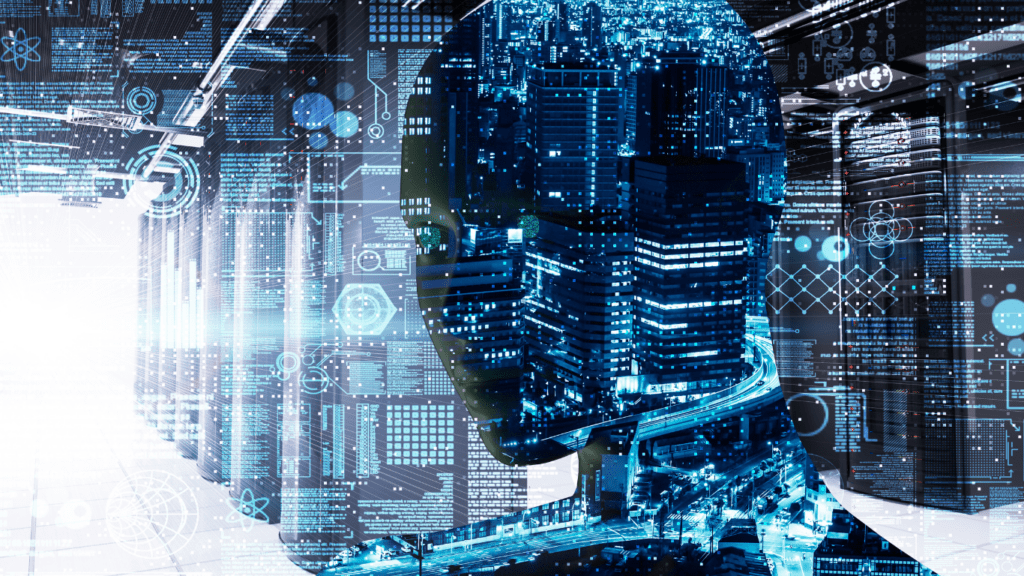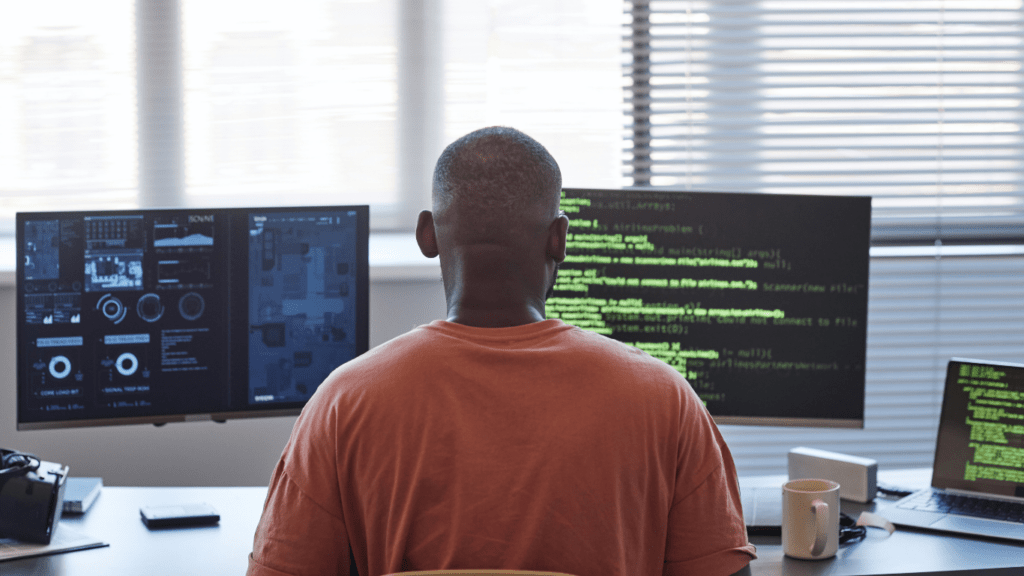Coding has always been the backbone of innovation, but it’s evolving faster than ever thanks to artificial intelligence. From automating repetitive tasks to generating entire codebases, AI is reshaping how developers approach software creation. It’s not just a tool—it’s becoming a collaborative partner in the development process.
The Rise Of AI In Software Development
AI has shifted from being a theoretical concept to a driving force in software development. Its integration into coding processes is reshaping how developers approach problem-solving and project execution.
Historical Context Of AI In Coding
AI’s role in coding began with basic automation tools. In the 1950s, early AI researchers explored machine intelligence to solve mathematical problems. By the 1980s, expert systems like Lisp machines enabled rudimentary AI-assisted programming. Tools like syntax checkers and debuggers emerged to optimize writing and error correction. In the early 2000s, more advanced integrated development environments incorporated code prediction features, laying a foundation for today’s AI coding assistants.
Key Milestones In AI-Powered Development
Several breakthroughs have defined AI’s impact on software development:
- Neural Network Models (2010s): Deep learning frameworks like TensorFlow and PyTorch allowed AI to better understand patterns in datasets, enabling robust solutions for software design and analysis.
- Natural Language Processing (2018): AI tools like OpenAI’s GPT models introduced context-aware text generation, accelerating code writing and review.
- AI Code Assistants (2020s): Platforms like GitHub Copilot and Tabnine transformed AI from a support tool to an active coding collaborator, increasing productivity and reducing repetitive tasks.
- Automated Testing Advances: AI-powered testing tools like Applitools and Testim enabled efficient defect detection by simulating real-world scenarios and intelligently analyzing outcomes.
These milestones illustrate AI’s progression from simple aids to sophisticated tools that are reshaping the development landscape.
Enhancing Development Speed And Efficiency
AI tools are revolutionizing how developers work by accelerating coding processes and improving accuracy. These advancements reduce manual effort, allowing teams to focus on core functionalities and creativity.
Automated Code Generation
AI-powered tools generate complete code snippets or frameworks based on simple inputs or descriptions. GPT-based models and systems like GitHub Copilot analyze programming intent to recommend:
- lines
- functions
- algorithms
that align with specific project goals. This shortens the initial development phase and minimizes syntax errors. For instance, in repetitive tasks like creating APIs or database queries, automation eliminates redundant writing and ensures consistency.
Debugging And Testing With AI
AI simplifies debugging by identifying critical code vulnerabilities or syntax issues. Static analysis tools driven by machine learning scan for bugs even in complex codebases. Platforms like DeepCode and SonarQube detect inefficiencies, recommend fixes, and prevent deployment errors. In testing, AI optimizes unit testing frameworks, auto-generates test cases, and predicts potential software failures, enhancing code reliability and quality assurance.
Streamlining Project Management Tasks
AI assists with task assignments, progress tracking, and resource allocation. Project management platforms, such as Jira and Monday.com, use AI algorithms to predict deadlines and recommend task prioritization based on workload and team capacity. Natural language processing enables automated communication updates, reducing time spent on administrative coordination. For multi-developer projects, these tools ensure alignment and timely deliverables.
AI-Driven Innovation In Coding Practices

AI technologies are advancing coding practices by offering personalized tools and enabling more effective collaboration between developers and AI systems. These innovations enhance skill development and streamline project workflows.
Personalized Learning Tools For Developers
- AI-powered learning tools adapt to individual developers’ needs, creating tailored educational experiences.
- Platforms like GitHub Copilot and Tabnine analyze coding patterns, providing real-time suggestions that align with a developer’s expertise and learning goals.
- For beginners, these tools can simplify complex concepts by breaking them into manageable steps.
- Advanced developers benefit from intelligent learning recommendations that refine efficiency and introduce new techniques.
- By automatically highlighting knowledge gaps and presenting relevant documentation, AI accelerates skill advancement across proficiency levels.
Collaborative Development With AI Assistants
AI assistants enhance collaboration by acting as real-time development partners. Tools like OpenAI’s ChatGPT optimize coding workflows by generating actionable code snippets, debugging existing functions, and even recommending structural improvements to design architecture. In group projects, AI helps unify coding styles by enforcing standardization and identifying inconsistencies across repositories. These systems assist in merging code by suggesting conflict resolutions, ensuring that collaborative efforts remain seamless. Developers utilize these assistants to offload repetitive tasks, which frees time for innovative problem-solving and strategic planning.
Addressing Challenges And Ethical Implications
AI’s rapid integration into software development introduces challenges requiring careful attention. By addressing code quality, job displacement concerns, and ethical dilemmas, these challenges become opportunities for improvement.
Ensuring Code Quality And Security
AI enhances code quality but doesn’t eliminate risks. Automated coding systems may generate code with hidden vulnerabilities if training data contains flawed patterns or biased inputs. Identifying and rectifying such issues involves developers closely monitoring AI outputs to ensure they meet security standards.
Advanced AI debugging tools improve software reliability by detecting and fixing potential exploits. For example, static analysis tools powered by machine learning identify security risks in real-time, aiding developers in writing safer applications. Human oversight remains essential in critical fields like finance or healthcare, where system failures can have significant consequences.
The Debate Over Job Displacement
While AI enhances productivity, it raises job security concerns among developers. Automating routine tasks can reduce the need for entry-level roles, reshaping career pathways within the industry. Coding bootcamp graduates or junior developers may face increased competition as AI handles simpler development tasks.
However, new opportunities emerge alongside automation. AI requires skilled professionals to refine algorithms, oversee implementations, and guide machine learning processes. Specialized roles, such as AI ethicists or data curators, diversify the tech job market and ensure the human-AI collaboration thrives.
Ethical Considerations In AI-Generated Code
AI-generated code introduces ethical challenges, particularly around accountability and intellectual property. Determining liability for errors or misuse of AI-written code poses a complex issue, especially when systems autonomously adapt or generate unforeseen outputs.
Bias embedded in source datasets presents another ethical challenge. Developers using biased AI tools risk perpetuating or amplifying systemic inequities. Rigorous evaluation methods, diverse datasets, and transparent AI training processes minimize these risks and encourage equitable outcomes.
Balancing innovation with accountability requires open discussions. Clear policies and international guidelines can help define responsibility, ensuring AI tools enhance development without compromising ethical standards.


 Mikeel Wrighteners, the visionary founder of Code Hackers Elite, has built a dynamic platform that bridges the gap between innovation and community in the coding world. With a passion for empowering developers, Mikeel leads the charge in delivering timely news, expert insights into software development best practices, and career guidance for professionals navigating the ever-evolving tech landscape. His mission is to ensure coders stay ahead of the curve and inspired in their journey.
Mikeel Wrighteners, the visionary founder of Code Hackers Elite, has built a dynamic platform that bridges the gap between innovation and community in the coding world. With a passion for empowering developers, Mikeel leads the charge in delivering timely news, expert insights into software development best practices, and career guidance for professionals navigating the ever-evolving tech landscape. His mission is to ensure coders stay ahead of the curve and inspired in their journey.
